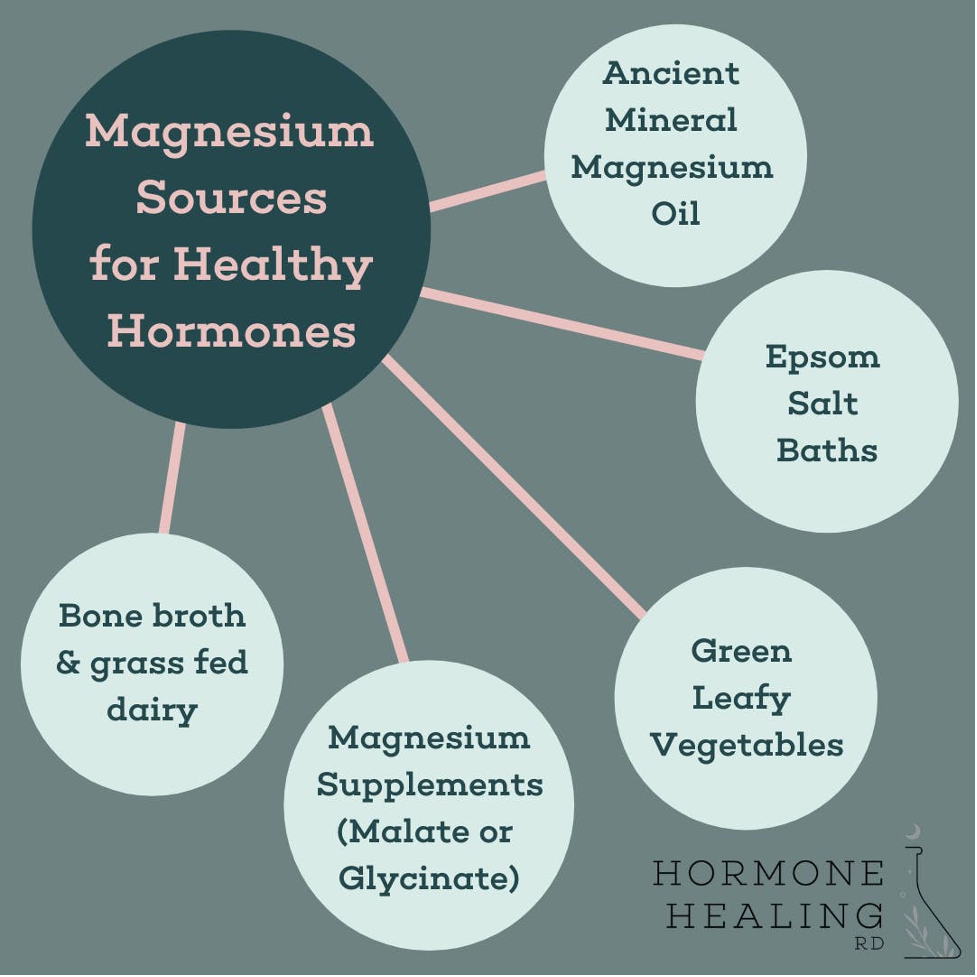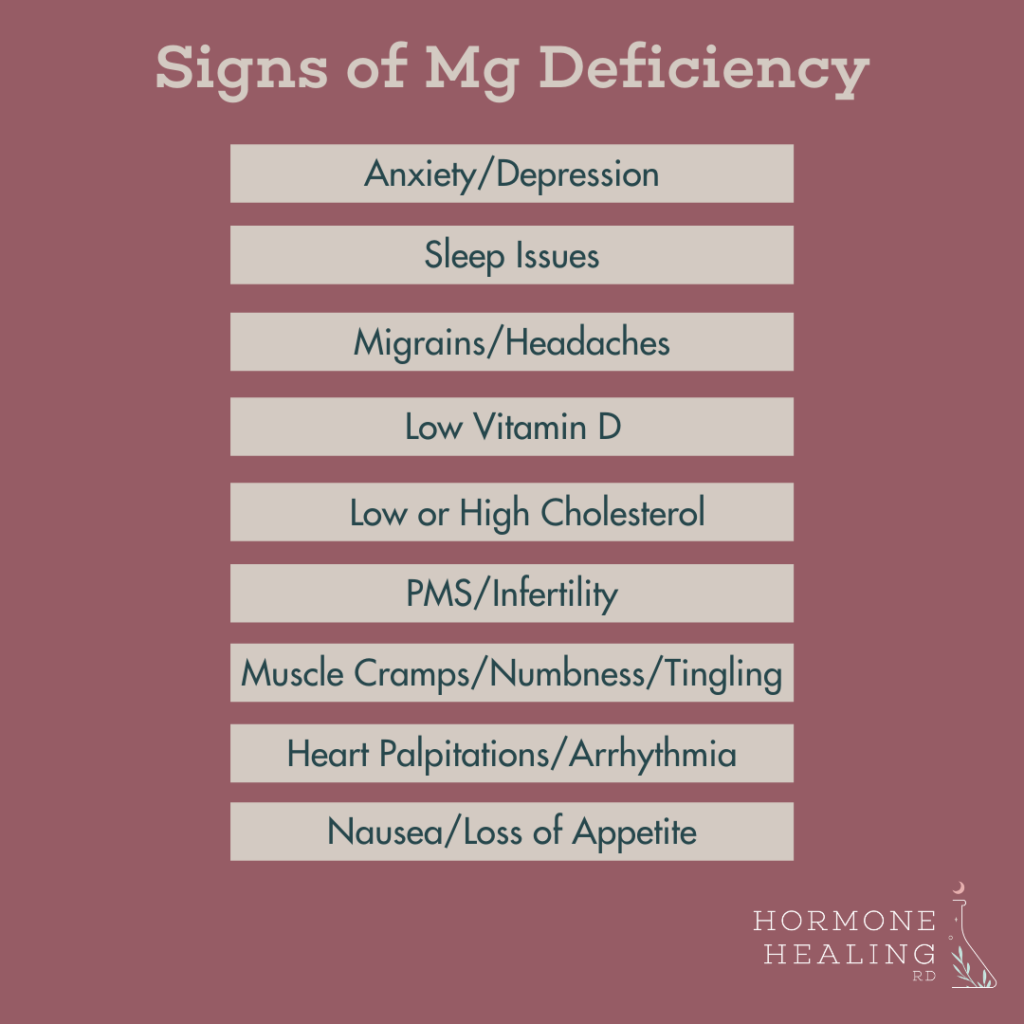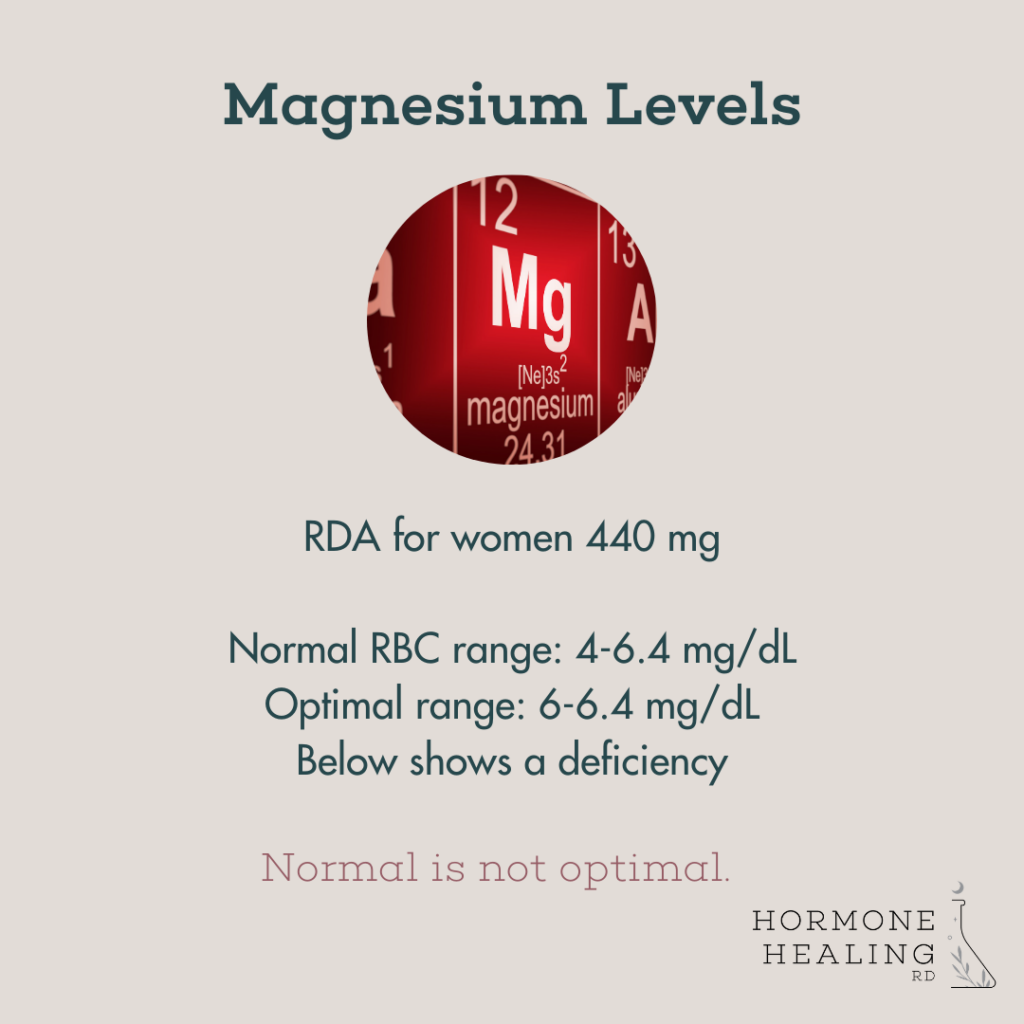I am pretty conservative about supplements and very conservative when it comes to supplementing with minerals. Minerals aren’t just high or low. They all connect, and some are even antagonists. For example, copper and zinc are synergistic, meaning they work together, but having too much can still deplete the other. This is why I don’t recommend supplementing with Zinc. Too much zinc will deplete copper, and copper is vital for so many things, but especially energy production within the body. We need the energy to make hormones! I did a blog series on the importance of minerals as it relates to hormone health. Magnesium is one of the minerals that I highlighted. Magnesium is essential for proper thyroid function and happens to be one of the minerals that everyone reacts well to. There are many ways in which you can increase your magnesium levels without taking a supplement, including:

Why is magnesium essential for hormone health?
There are over 500 bodily functions that require magnesium. The body needs magnesium for cell metabolism, energy production, and insulin regulation. One specific area of importance is its role in regulating how our bodies process sugar. Magnesium is the first mineral to be depleted during a stress response. Low levels of magnesium can lead to blood sugar imbalances and feelings of anxiety. If you notice that your blood pressure is low, or your heartbeat has become irregular, or you have muscle weakness or water retention, it is usually a sign that your magnesium level is low. Supplementation may be necessary at this point. If an individual reacts negatively to magnesium supplements, it is generally because their levels are too low. Eventually, with careful titration, things improve and balance out.
Magnesium deficiency can look like:

How much magnesium do I need?
For women, PMS can be a massive headache, both literally and figuratively. The amount of magnesium needed depends on the person. The RDA for women is around 440mg. One study showed that of 192 women taking 400mg of magnesium daily for PMS, 95% experienced less breast pain and had less weight gain, 89% suffered less nervous tension, and 43% had fewer headaches. This is pretty cool and shows you just how powerful magnesium can be. Our magnesium needs increase as our hormones increase during our luteal phase, making sense that women supplementing with magnesium would notice an improvement during this time. This also sheds light on why some women get headaches when they take the birth control pill since you are putting hormones in your body and using up more magnesium. They likely need to supplement with magnesium to avoid those headaches.
How do I know if my magnesium levels are low?
When it comes to testing magnesium levels, the most accurate test is Magnesium RBC blood testing and hair mineral analysis. Blood testing looks outside of the cell, and hair testing looks inside the cell. I do hair testing with all of my clients and find this gives us plenty of information. If someone has their magnesium RBC, that is cool, but in practice, the hair is plenty. Magnesium RBC is very different from regular magnesium measured on a blood test. Because blood serum can only measure less than 1% of the body’s total magnesium, a magnesium RBC is the best option for using blood. It is also the main reason I find hair testing is so important.
Important Reminder: Normal is not optimal. Magnesium RBC levels range from 4-6.4 mg/dL; however, optimal is 6-6.4. Optimal levels on a hair test are 6. Below this shows a deficiency. On hair testing, when levels are high, it’s a sign your body is using up a lot of magnesium and that stress is present.

If you feel that your mineral levels may be imbalanced, you will gain valuable insight through our Master Your Minerals course! In it, we teach you how to interpret your own HTMA and build a hormone-healing protocol based on your unique results. Always, I repeat, always talk to your healthcare practitioner before taking any supplements. While magnesium is considered safe for most people, it’s still best to check-in before supplementing. Don’t forget to check out Master Your Minerals to learn more about minerals and how they impact your hormones and metabolism.
